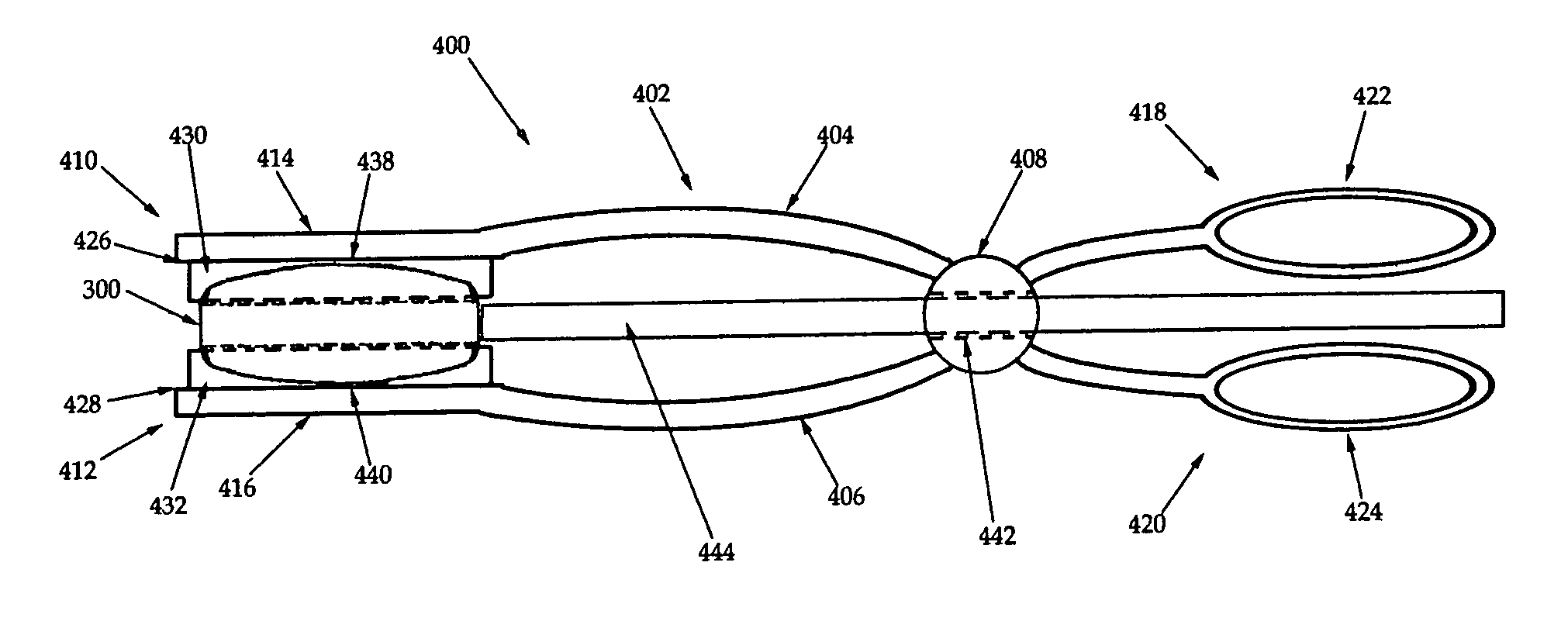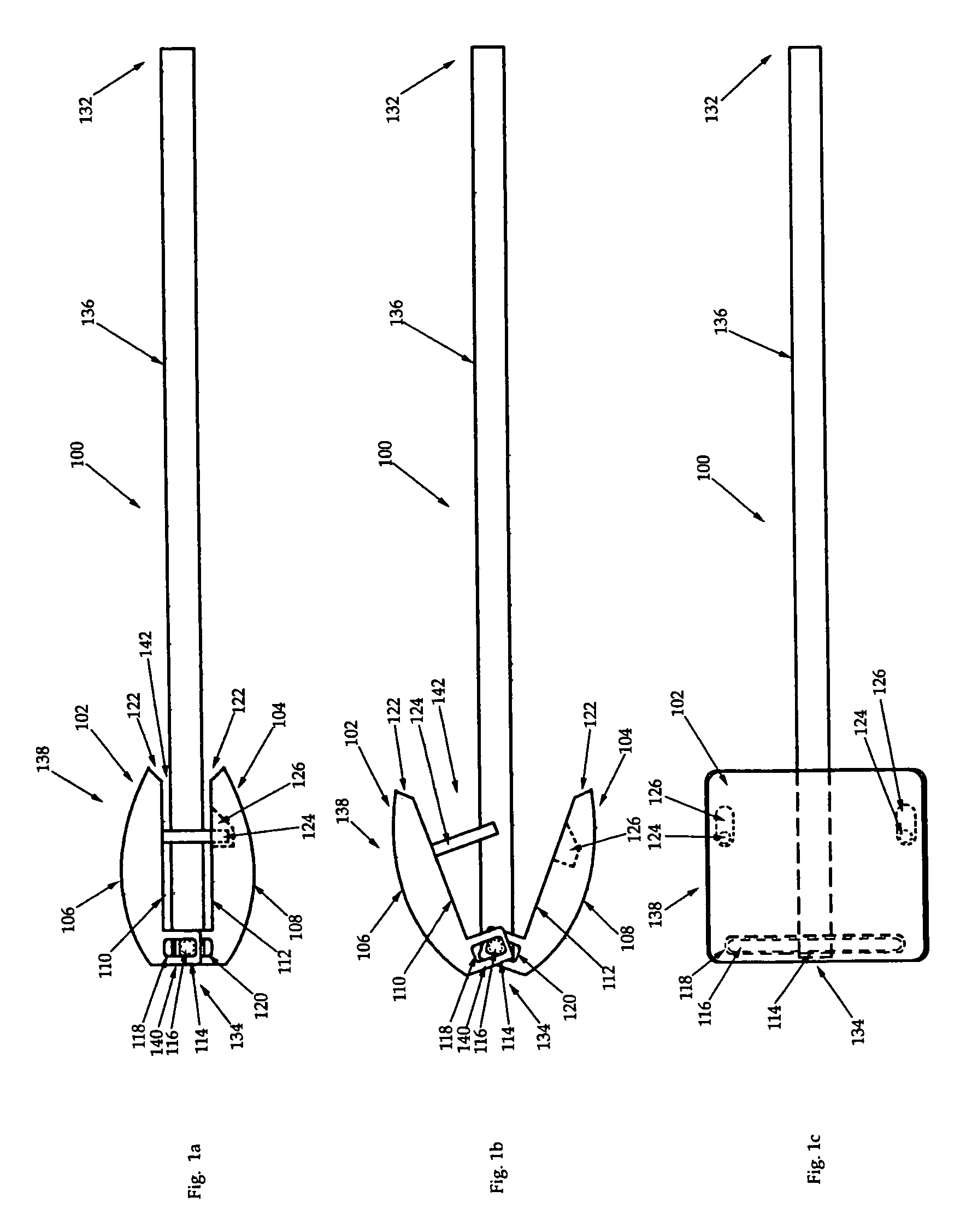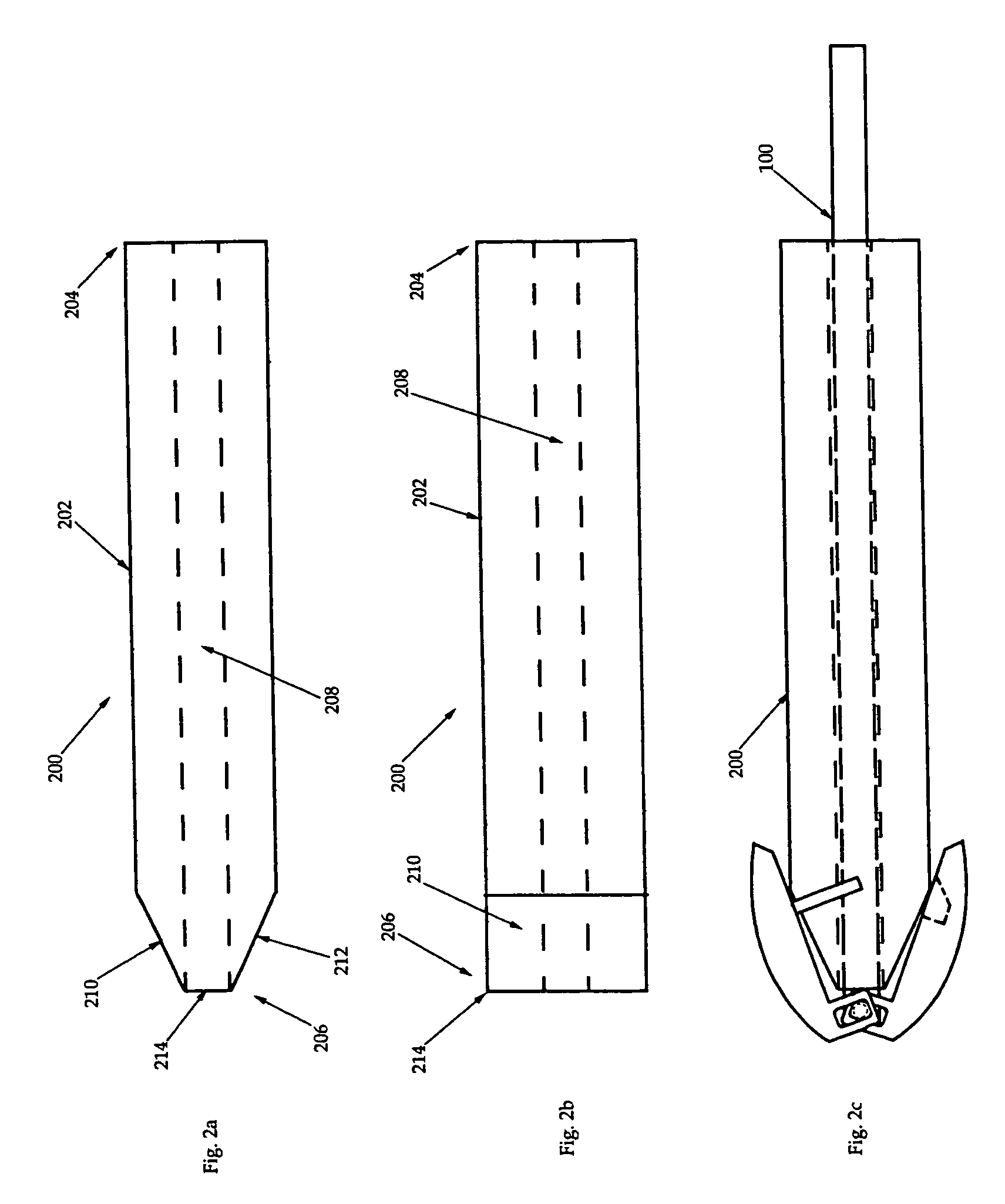Spacer device and insertion instrument for use in anterior cervical fixation surgery
a spacer device and anterior cervical spine technology, applied in the field of anterior cervical spine surgery medical instruments, can solve the problems of significant pain, particularly complex connective tissue of the neck, and achieve the effects of facilitating fusion, stimulating bone growth, and convenient fitting
- Summary
- Abstract
- Description
- Claims
- Application Information
AI Technical Summary
Benefits of technology
Problems solved by technology
Method used
Image
Examples
Embodiment Construction
[0026]While the present invention will be described more fully hereinafter with reference to the accompanying drawings, in which particular embodiments and methods of implantation are shown, it is to be understood at the outset that persons skilled in the art may modify the invention herein described while achieving the functions and results of this invention. Accordingly, the descriptions that follow are to be understood as illustrative and exemplary of specific structures, aspects and features within the broad scope of the present invention and not as limiting of such broad scope. Like numbers refer to similar features of like elements throughout.
[0027]Referring now to FIGS. 1a-c, an intervertebral distraction tool 100 is shown in two side views (FIG. 1a where the trial 100 is closed, and FIG. 1b where the trial 100 is open) and a top view, respectively. The trial 100 has a proximal end 132 and a distal end 134, the proximal end 132 being defined by an elongate shaft 136, and the ...
PUM
 Login to View More
Login to View More Abstract
Description
Claims
Application Information
 Login to View More
Login to View More - R&D
- Intellectual Property
- Life Sciences
- Materials
- Tech Scout
- Unparalleled Data Quality
- Higher Quality Content
- 60% Fewer Hallucinations
Browse by: Latest US Patents, China's latest patents, Technical Efficacy Thesaurus, Application Domain, Technology Topic, Popular Technical Reports.
© 2025 PatSnap. All rights reserved.Legal|Privacy policy|Modern Slavery Act Transparency Statement|Sitemap|About US| Contact US: help@patsnap.com



